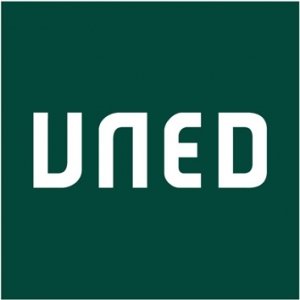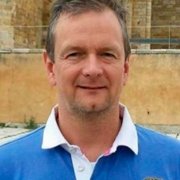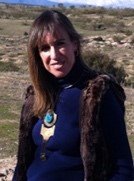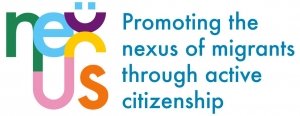The National Distance Education University (UNED)  is a Spanish public university that provides distance education at national and international levels.
is a Spanish public university that provides distance education at national and international levels.
It was founded in 1972 to enable priority access to university and further education for all those who, while capable of pursuing higher studies, were unable to attend on campus classes for work, financial, residential, or other reasons.
With more than 260,000 students, it is the largest higher education institution in Spain and one of the largest universities in Europe. It is also the leader in the implementation of cutting edge technologies applied to teaching and learning, with the largest offer of online courses in Spain. The difference between UNED and the rest of universities in Spain lies not only in its student numbers
but also on its geographic dimension (national and international) and on the use of a blended-learning methodology and complementary pedagogical tools (television, radio, video and online virtual university campus).
UNED has more than sixty associated regional study centers with more than 100 extensions and classrooms, where tutoring takes place and also the venues for the proctoring of in-person exams,
allowing students to access all kinds of academic services, including libraries, audiovisual materials, face-to-face tutorials, videoconferencing and a virtual campus (telematic tutoring). Furthermore, UNED is present in thirteen countries in Europe (Germany, Belgium, France, United Kingdom, Switzerland, and Italy), America (United States, Argentina, Peru, Mexico, Brazil and Venezuela) and Africa (Equatorial Guinea). UNED has more than 1,400 academic teaching staff, distributed in nine Faculties and two Technical Schools. Moreover, the associated regional study centers have more than 7,000 tutors.
Why we are participating in the project?
UNED has a long history of researching in open educational resources and practices. As an organisation, it has a mandate for inclusive education at a national level in Spain. It particularly focusses on the needs of people with disabilities and prison inmates. Over the years, it has lead and been involved in many funded projects, at both national and European level, relating to different aspects of open distance learning. Specifically, UNED was one of the first universities to offer MOOC at a European level, starting in 2012, an initiative that focused not only on the technical and pedagogical aspects of such open online learning but also its recognition, certification and accreditation. The participants of UNED in this project research in OER, OEP, ODL, MOOCs and MALL. As such they bring a wide experience to the project and are greatly interested in the research being undertaken therein.
Our role in the project
The role of UNED in this project is to coordinate the project, to lead Output 1, a MOOC on Civic education with micro-learning units, and to participate in the other outputs in order to help and support their successful resolution. In general terms, the research team from UNED will apply our expertise of open education and MOOCs in Higher Education to the project objectives. Our participation in related EU projects beforehand, such as MOONLITE (moonliteproject.eu/), and OEPass (oepass.eu/), gives us the experience we need for this process together with a clear idea of the problems that need to be solved.
Related to the NEXUS objectives, in MOONLITE we also had a role as coordinators and we developed and implemented three MOOCs on the topic of social inclusion: two LMOOCs to learn Spanish for migrants and refugees, and one MOOC on how to develop and use MOOCs for displaced people.
Specifically, in our role as the leaders for Output 1, we will take care of the design, development, implementation and evaluation of a MOOC on civic education aimed at students with a migrant background. Also, we will lead the activities to design and test a knowledge-sharing platform for civic educators. These activities will hopefully help migrant students to exercise their rights, and to better participate in their environment as members of society.
Our Team

Dr. Timothy Read
Timothy has held positions in the university government at UNED. He is an EDEN Fellow and the cofounder of the ATLAS research group. He is currently working in funded projects in the area of mobile assisted language learning (MALL), massive open online courses for languages (LMOOCs) and open education.

Prof. Elena Barcena
She has lead several officially funded national research projects on CALL related topics and has published extensively in this field at both national and international levels. She is also an expert adviser for national and international institutions and a member of the editorial board of a number of specialized journals.

Dr. Beatriz Sedano
Beatriz Sedano has a Ph.D. in Education & Treatment of Languages through the ICT PhD program at UNED on LMOOCs and open education. She has worked at UNED for 3 years in an Erasmus+ project called MOONLITE developing MOOCs for refugees and migrants to build their language competences and entrepreneurial skills.
Rest of Team Members
- Jorge Arús, Member. Vice-dean of Quality and Innovation at the Faculty of Philology, Universidad Complutense de Madrid and member of ATLAS.
- María Dolores Castrillo, Member. Senior Lecturer of the Dpt. of Modern Languages, member of ATLAS and coordinator of GLOBE (Innovative Didactic Group for Languages in Open and Blended Environments).
- Ana Ibáñez, Member. ERASMUS Coordinator and member of ATLAS.
- Elena Martín-Monje, Member. EuroCALL Language MOOC Special Interest Group Chair.
- Antonio Pareja-Lora, Member. Associate Professor (Tenure Track) at Universidad Complutense de Madrid and member of ATLAS.

